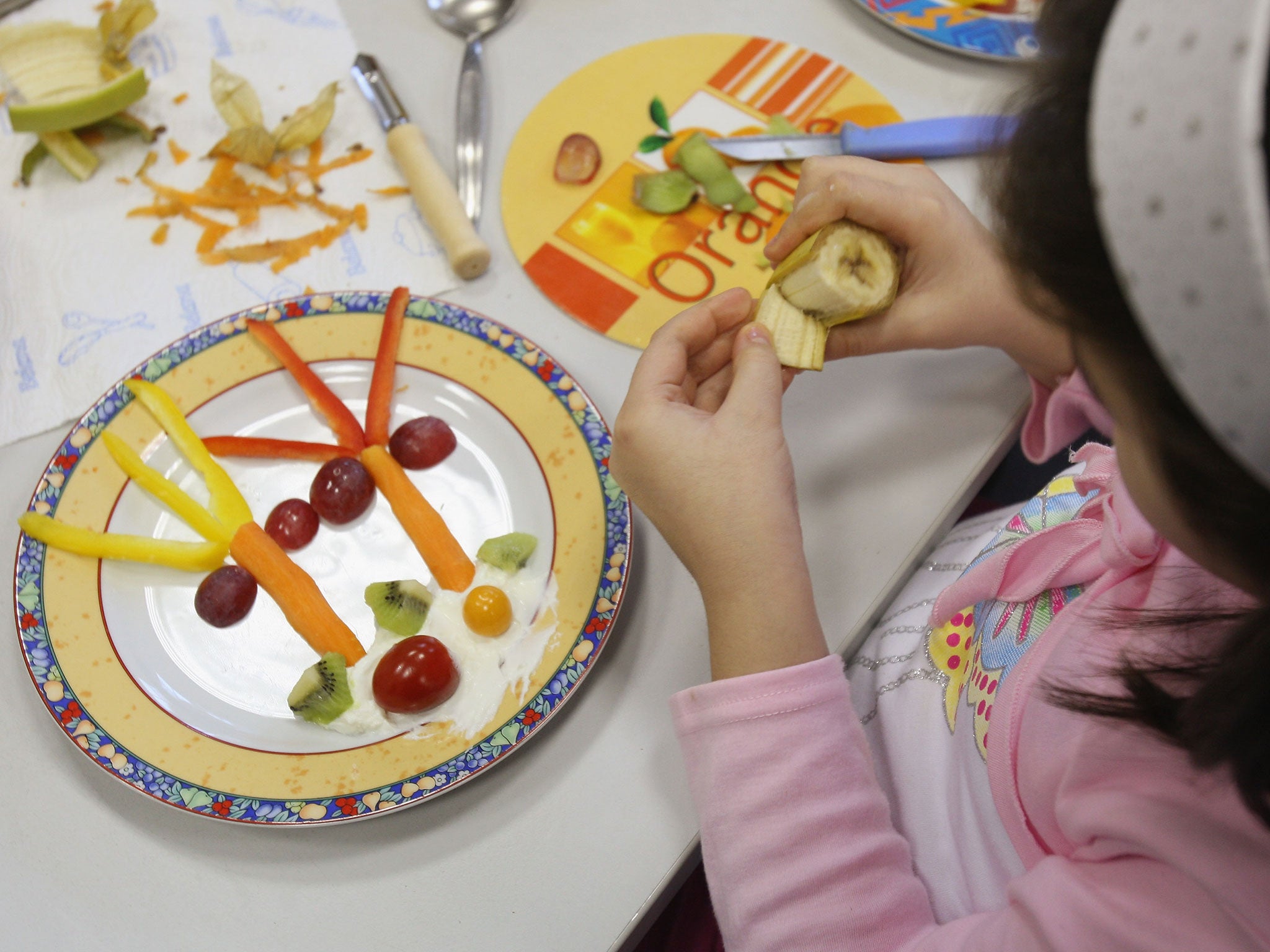Children are more likely to eat vegetables if they see others doing the same, study finds
Scientists showed children videos of other kids eating bell peppers

Your support helps us to tell the story
From reproductive rights to climate change to Big Tech, The Independent is on the ground when the story is developing. Whether it's investigating the financials of Elon Musk's pro-Trump PAC or producing our latest documentary, 'The A Word', which shines a light on the American women fighting for reproductive rights, we know how important it is to parse out the facts from the messaging.
At such a critical moment in US history, we need reporters on the ground. Your donation allows us to keep sending journalists to speak to both sides of the story.
The Independent is trusted by Americans across the entire political spectrum. And unlike many other quality news outlets, we choose not to lock Americans out of our reporting and analysis with paywalls. We believe quality journalism should be available to everyone, paid for by those who can afford it.
Your support makes all the difference.Many parents know that persuading young children to eat vegetables can feel like wading through mud.
But a new study has found that simply showing a child a video of a peer eating their greens can encourage them to follow suit.
US researchers set out to investigate how children would respond to watching fellow youngsters eating vegetables.
As part of the study, 42 children aged between three to five-years-old were randomly assigned the task of watching a video showing children eating a bell pepper or a video of a child brushing their teeth. Another segment of the group was not asked to watch a video at all.
A day later, the researchers found that the children who watched the bell pepper video ate less of the vegetable than the other children. However, a week later the children who watched the video ate 15g of bell peppers, while the other children ate 5.6g.
They were also more likely to say that they would eat the vegetable again when compared to the other group.
Amanda Staiano, of the Biomedical Research Center in Baton Rouge, Louisiana, who led the study published in the 'Journal of Nutrition Education and Behaviour', told Reuters Health that the study suggests that showing children footage of their peers eating vegetables before mealtimes, either at home or in playschool, could encourage them to eat healthier food.
Amy Yaroch, executive director of the Gretchen Swanson Center for Nutrition in Omaha, Nebraska, who was not involved in the research told the website: "We know from behavioral theory that role modeling is an effective strategy to get people (including young kids) to adopt healthy behaviors."
Join our commenting forum
Join thought-provoking conversations, follow other Independent readers and see their replies
Comments